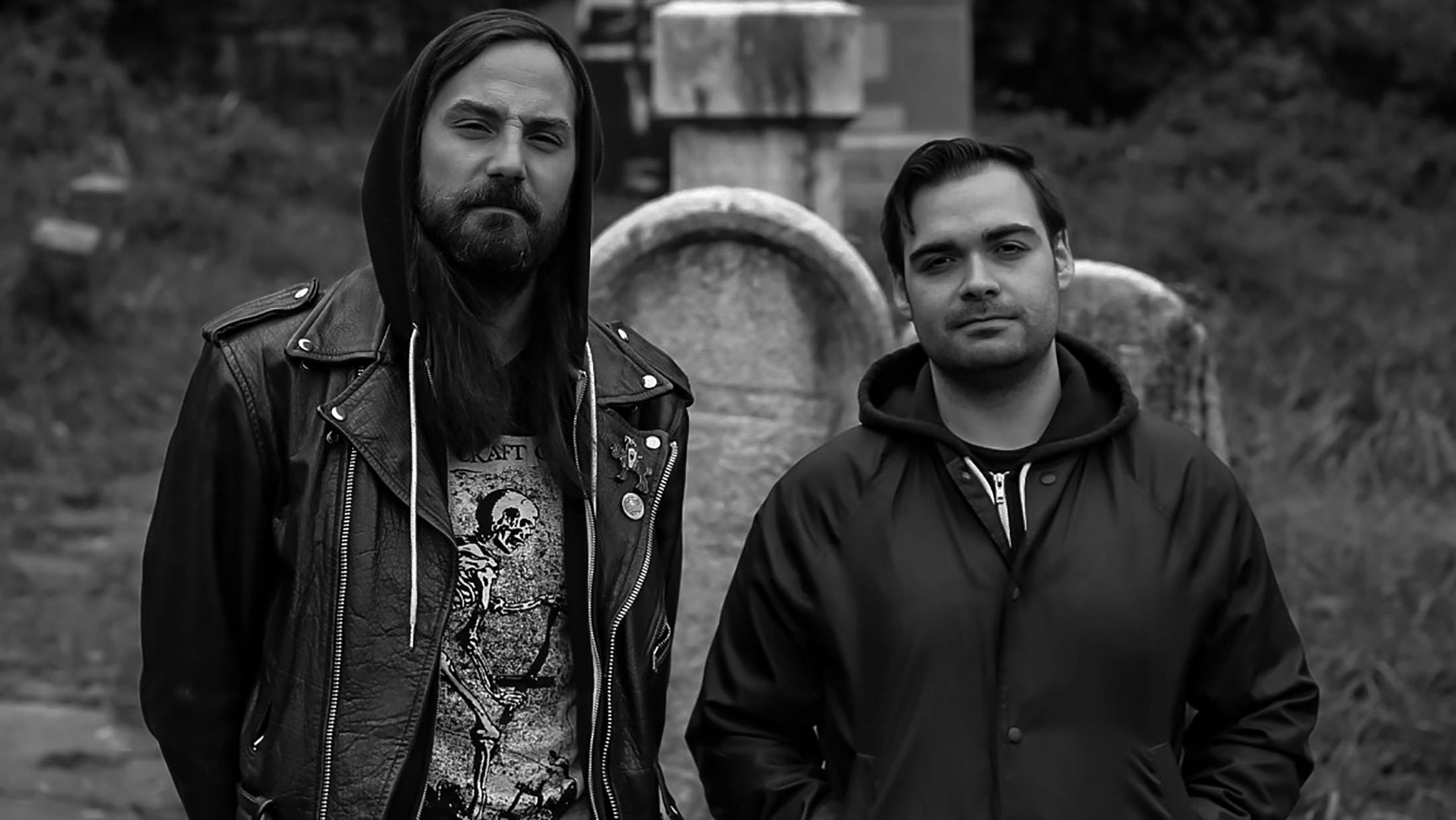Alex Rosamilia thinks a lot. It tends to leave his head in a bit of a spin. Started after The Gaslight Anthem went on hiatus in the summer of 2015, Dead Swords is the first band Alex has ever fronted and is his attempt to make sense of all those thoughts.
The group – completed by Corey Perez (Bottomfeeder, I Am The Avalanche, Let Me Run) and a cast of other musicians when playing live – released their first EP, Skeletons…, in November 2016, and followed it up with another called Broken Souls the following March. Both musically and lyrically, Dead Swords is an overwhelmingly bleak experience; a barrage of loud noise and a wall of forlorn guitars that incorporates elements of shoegaze and doom while also recalling The Cure at their most lugubrious and Nine Inch Nails at their most existential.
The band’s debut album – which you can stream exclusively below – acts as a searching journey into the darkest corners of Alex’s mind as it confronts his deepest fears about mortality and existence. It’s a bold record full of stark, funereal beauty that twists and turns in agony and despair, with a heavy dose of existential despondency. That might surprise anyone expecting it to sound like The Gaslight Anthem, but it is, he says, the truest and most accurate representation of who he is as a person and a musician.
Why did you start Dead Swords?
Gaslight made a choice to not tour as much. Everybody wanted to take a little break and Brian [Fallon, Gaslight frontman] wanted to work on solo stuff, so I figured instead of sitting on my rear I would try to write some songs. I’ve always written songs, even though we’ve never used any for Gaslight – all my stuff was usually a bit slow and a bit long, funnily enough. But nobody is pushing the envelope in music anymore – they just make what they think things should sound like. So the idea was that I wanted to write songs with substance. I don’t think a lot of music does that anymore. And on top of that, lyrically, I felt music had gotten a little stale. No-one was morose anymore. At least, from what I could see, there was no really depressing music, which is my favourite kind!
You tackle some heavy subjects on these songs…
I wanted it to make you think; to sit on the words I’m saying and let it percolate a bit. These are things that I think about and maybe other people do, too. I wanted to write about the fact that these ideas exist, but I don’t want it to be a good thing that they do. I talk about being suicidal or being depressed, but I don’t talk about wanting to do it, I talk about feeling that way. That’s stuff I’ve struggled with throughout my 37 years on this planet. But there should always be hope. It’s too depressing without hope, because it’s still depressing with hope!
If you didn’t have Dead Swords, what would you be doing to get that stuff out of you?
I don’t know, man. Drugs? Seriously. Before I started writing these songs, I didn’t really have an outlet. My outlet was drinking and I’d been lucky enough to have a job that kind of promotes that throughout my twenties and half of my thirties. That might be part of the reason it happened, when we slowed down and stopped working, because I was home and not drinking as much and I felt, ‘Man, this is getting even more depressing.’ And I needed another outlet. I decided I wasn’t going to use alcohol, so it started coming out in songs instead. Man, that’s fucking sad. Honestly, I’ve never thought about that before, but the real reason I started writing these songs was because I didn’t want to drink. And that’s not saying I don’t drink, because I thoroughly enjoy it, but I need to do something to deal with the stuff going on inside my head.
